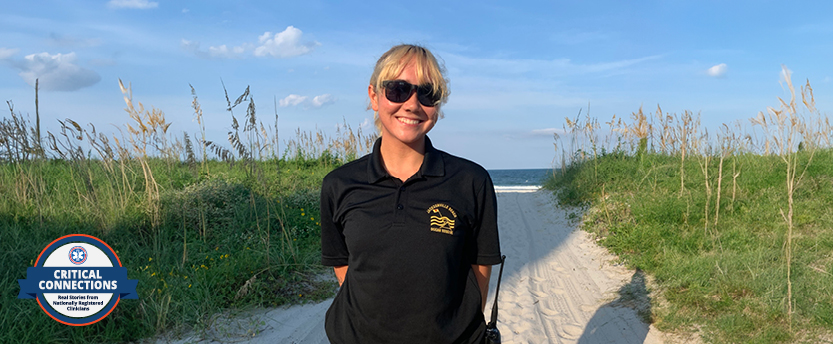"Shark bite!" This is likely the mental image that comes to mind for many when picturing an emergency medical technician on a beach. However, the truth is that such incidents are actually quite rare.
“Heart attacks, strokes, gnarly abrasions, fractures, skimboard, and surfboard injuries,” says Lieutenant Savanna Coker, a Nationally Registered Emergency Medical Technician (EMT) with the Jacksonville Beach Ocean Rescue Division. “People would be surprised at what we see on a daily basis and the training that we have to go through to keep you safe for your day at the beach.”
First things first. Coker says the journey begins as a lifeguard. This role involves a range of physical activities like swimming, running, and other demanding tasks. Tryouts include a 550-yard open water swim in the Atlantic Ocean and a quarter-mile run on the beach. However, these are not leisurely endeavors – the swim must be accomplished within 10 minutes, and the run must be completed within four minutes. Additionally, there are several more physical benchmarks to meet. Only after achieving these standards, Coker explains, can individuals proceed to learn about emergency medical response.
At Jacksonville Beach, lifeguards undergo training at the Emergency Medical Responder (Basic Life Support) level. They are then stationed at various lifeguard towers along the beach. Emergency Medical Technicians usually serve as officers within the Jacksonville Beach Ocean Rescue Division. They are equipped to respond to emergencies using dedicated vehicles with a wide array of response equipment. This ensures they are prepared for the wide variety of situations they might be called upon to address.
“Our calls can encompass emergencies both in the water and on land, and they might range from unique to quite similar to what our land-based colleagues handle," explains Coker. "For emergency calls, we aim to dispatch a team of at least two officers (or EMTs) along with an additional four lifeguards." Coker highlights the significance of this additional staff, especially in busy and densely populated beach settings. One of the Basic Life Support (BLS) lifeguards assumes the role of "taking the tower" – a phrase used when stepping in for the lifeguard who reported the emergency. The two officers immediately initiate emergency care, while the remaining lifeguards contribute by managing equipment, crowd control, and aiding in moving the patient to safety, whether it's on land or in a shaded area.
"Our beach attracts tourists from various places – out of town, out of state, or even out of the country," explains Lt. Coker. "Due to their unfamiliarity with the environment, our patients often experience heightened anxiety as they find themselves caught in unexpected predicaments." Lt. Coker highlights that many beachgoers tend to overestimate their swimming capabilities in the ocean or underestimate their fluid intake before spending a hot day at the beach.
Armed with this knowledge, Lt. Coker explains that Jacksonville Beach Ocean Rescue places significant emphasis on proactive measures, aiming to forestall the necessity for reactionary actions. “We train our lifeguards and EMTs to watch for signs of potential distress, including weaker swimmers, rip currents, or issues on the beach that we know can lead to illness or injury.”
“I want to help people the best way I can, and that begins with staying up to date on procedures, techniques, and best practices for patient care,” says Lt. Coker. “I owe that to the people visiting our beaches because they are here to have fun and have the time of their lives.” Lt. Coker says she places high importance on compassion and empathy for her patients because she interacts with them on the worst day of their lives when they are hoping for a great day.
“The National Registry is a badge of pride to me,” says Lt. Coker. “I am keeping up with patient care and doing my best. It also gives me more opportunities down the road in my career. That is important to me.” Coker's enthusiasm for her role, unwavering pursuit of ongoing education, and steadfast dedication to patient care have yielded remarkable results. Just last year, she achieved a significant milestone by becoming the agency's inaugural female lieutenant.
However, serving as an EMT or EMR at the beach comes with its challenges. “Think about it – we are responding to emergencies barefooted and in shorts, a swimsuit, or a bikini,” says Lt. Coker. “We place so much importance on our PPE, including gowns, glasses, and gloves, to give us an extra layer of protection.” Coker says the hot environment can also lead to dehydration and heat exhaustion. “We have to be in peak condition and constantly prepared – there is no downtime on the beach.”
Still, Lt. Coker says she is extremely proud of the work she and her colleagues do. “I have the best job in the world – 100% recommend it. Who wouldn’t want to work on the beach and know that you are going to be the first person on the scene for every call?”
During the offseason, which spans from November 1 to the second week in March, Lt. Coker spends her time engaging in various educational endeavors. She teaches first aid to the public, specifically assisting Girl Scout and Boy Scout troops in obtaining their badges. Additionally, she educates schools on Beach and Ocean Safety while also training prospective lifeguard recruits. Her commitment to these activities underscores her dedication to enhancing community safety.
Furthermore, Lieutenant Coker emphasizes that working as an EMT at the beach not only offers the mentioned advantages but also serves as excellent preparation for pursuing remarkable opportunities in the field of Emergency Medical Services in the future. Many of our team members transition into roles such as paramedics or firefighters, and some even choose to remain at the beach, forging a lasting career dedicated to ensuring safety amidst the idyllic vacation setting.
Read More Articles In The Critical Connection Series
James Avery - "An Unexpected Destiny - How One EMS Provider Discovered Sometimes Fate Has Other Plans"
Randy Brinckman - "From Special Forces to a special career"
Jessica Cervantez - "Be A Rock In The Moment People Are Falling Apart"
Savanna Coker - "Waves of change: A departure from the Baywatch narrative"
Claire Countryman & Chris Ruggiero - "The next chapter could save a life"
John Nemes - "The journey of an EMS chief"
Tom Perreault - "43 Years Down and a Lifetime to Go"
Justin Solobay - "A Night To Remember"
Meryah Wilson - "Calm and collected; an Ohio paramedic makes history with her city’s department"
Bill Wood - "50 Consecutive Years Of National Registry Certification"
Media Contact:
Shane Cartmill
Public Relations and Media Manager
scartmill@nremt.org


